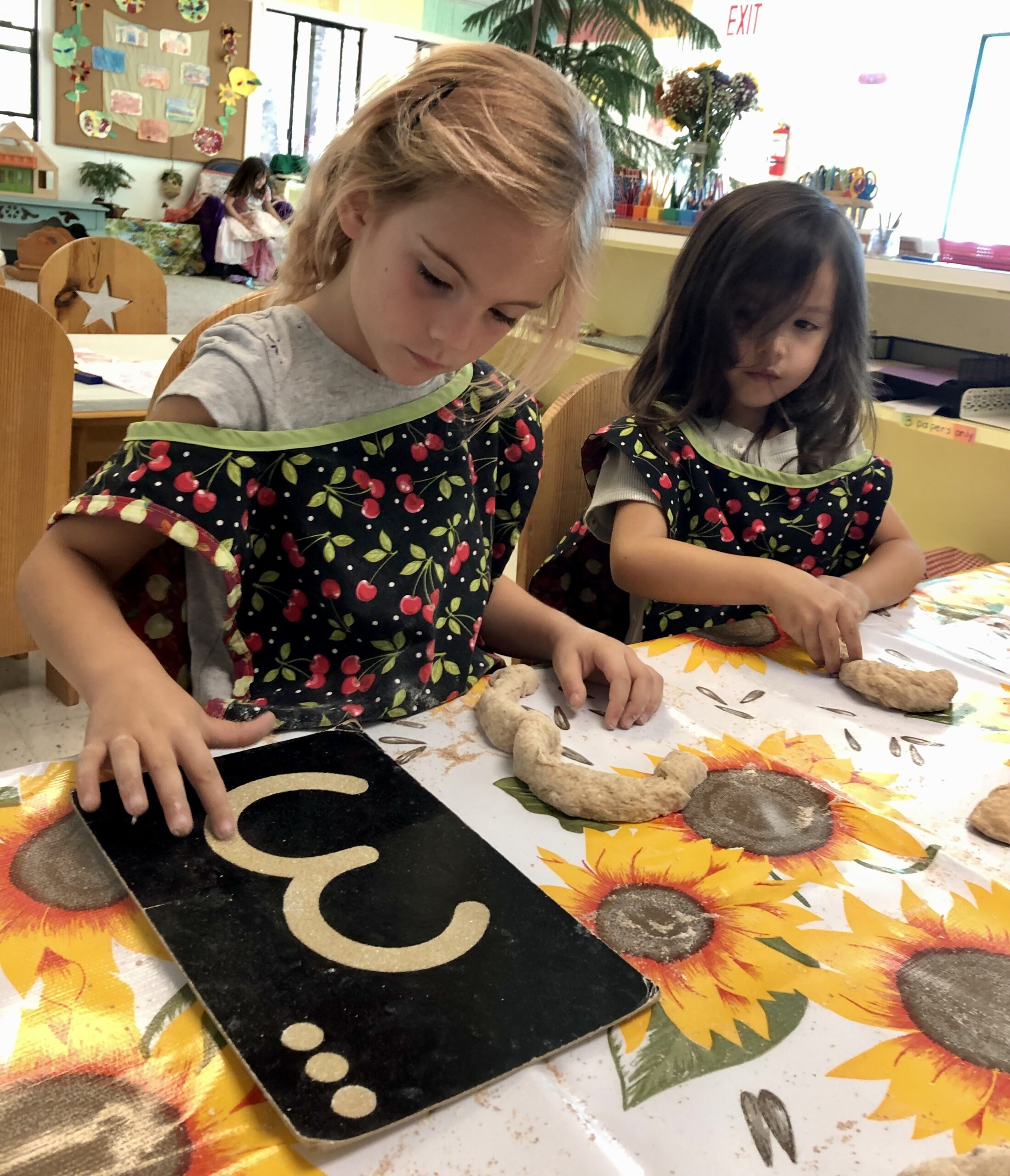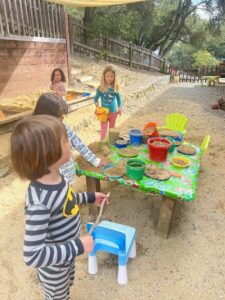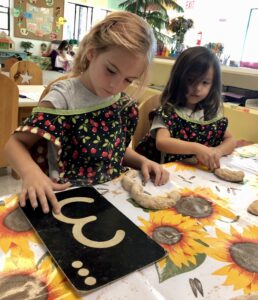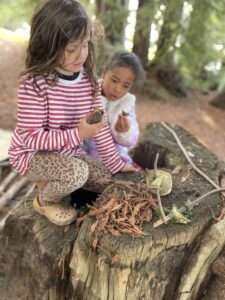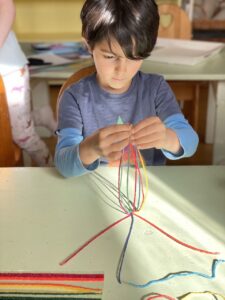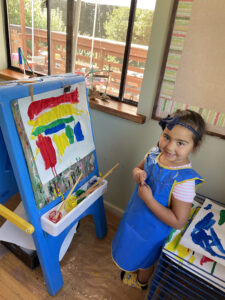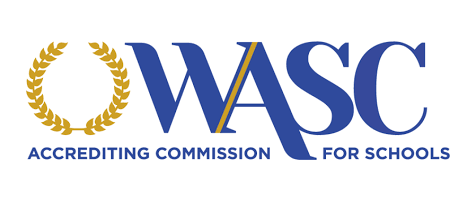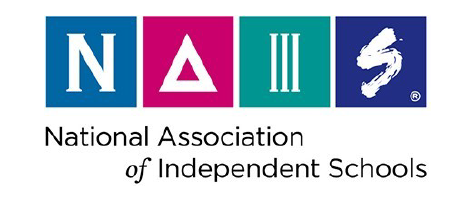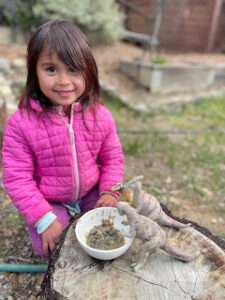 Imagination is more important than knowledge. For knowledge is limited to all we now know and understand, while imagination embraces the entire world, and all there ever will be to know and understand. – Albert Einstein
Imagination is more important than knowledge. For knowledge is limited to all we now know and understand, while imagination embraces the entire world, and all there ever will be to know and understand. – Albert Einstein
Everyone knows that young children love to play, but the latest in brain research clearly shows that children need to play in order to develop the skills that are required for success in academics and into adulthood. This knowledge guides the heart of high quality programs for young children by providing an engaging, creative, hands-on curriculum in a rich environment with plenty of free play time to explore the outdoors and develop friendship skills.
In the Mount Madonna School (MMS) preschool and kindergarten programs, teachers consider play to be an essential component and balance to the age-appropriate academic curriculum. Our approach to teaching the ABCs and 123s incorporates movement, song, storytelling, art and outdoor exploration, thus providing meaningful experiences that satisfy the young child’s curiosity and need to engage playfully in their learning explorations. While reading readiness and number sense skills are inherent in our activities throughout the day, we let these skills develop at each child’s pace by challenging each child at their own level, and not pressuring those who need a little longer to develop these abilities.
Whether it’s grinding acorns for the squirrels in the forest, building a spaceship out of blocks, baking “cakes” in the sandbox, or creating play props in the art area, opportunities for child-directed play permeate Mount Madonna’s preschool and kindergarten experience. The developmental needs of the whole child are addressed, supported by low student-to-teacher ratios, and with teachers poised to help the children express their ideas, negotiate positive solutions when conflicts occur and guide them in the core values of kindness and compassion.
Play involves the implementation of roles with rules, deep engagement, symbolic props, advanced planning, changing scenarios and voluntary self-regulation. Brain research has found that all of these activities serve to develop a child’s prefrontal cortex which is the home of executive function. Pretend play forms neurological connections in the brain which in turn help children to make meaning of their world. The use of symbols in pretend play also provides the foundation for future reading.
When young children engage in hands-on and interactive activities such as drawing, painting, baking, using scissors, felting and sewing, as well as large motor activities such as yoga, dancing, running, jumping, climbing, swinging and calming “ocean” breaths, their “play” is actually developing their vestibular and proprioceptive neural systems. The development of these systems is called sensory-motor integration or “brain mapping.” Studies show that sensory-motor integration is essential for developing the executive function abilities required for reading readiness and number sense.
Pretend play and well-developed executive functioning are linked to a variety of positive outcomes including increased language, communication, creativity, problem-solving skills and the ability to delay gratification. We know that a child who walks earlier will not be a “better” walker, and reading earlier is not an indicator of higher intelligence. In studies that follow children through adolescence and into adulthood, the level of executive functioning was more predictive of positive adult outcomes than both IQ scores and socioeconomic status.
Recent research in brain development solidly supports the wisdom of Mount Madonna School’s “playful,” developmentally appropriate approach to preschool and kindergarten. This approach is the antidote to today’s high-pressure “the earlier the better” focus for young children and the sedentary electronic activities that are filling up more and more of our children’s experience. The outcome of our efforts are capable, compassionate and creative children who have a joyful and positive attitude towards education that follows them into adulthood. – By Hema Walker
For more information on this topic:
“Smart Moves: Why Learning is Not All in Your Head” by Carla Hannaford
“Pretend Play and Brain Growth: The Link to Learning and Academic Success” published by the Gesell Institute of Child Development
The National Association for the Education of Young Children

